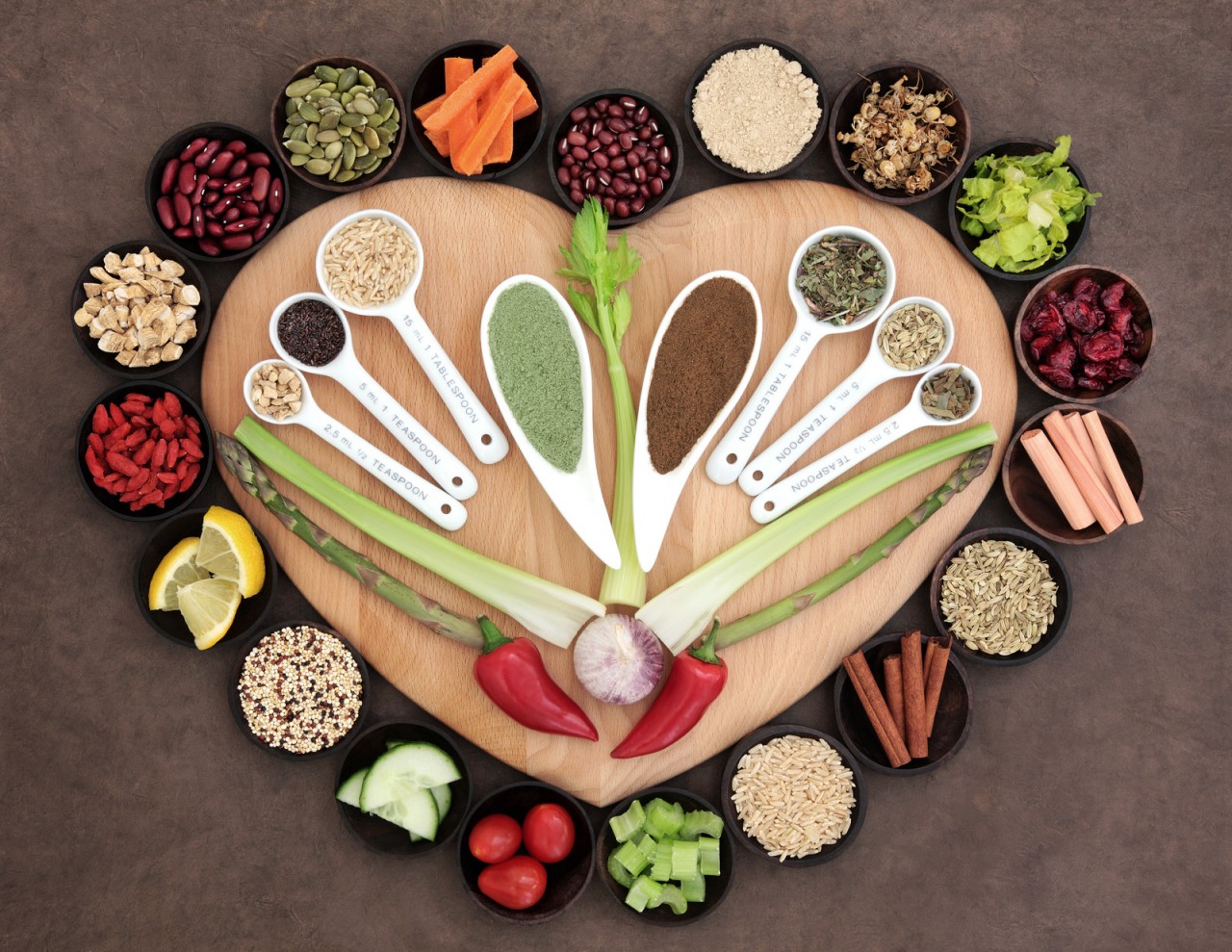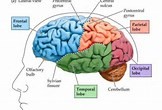Superfoods To Boost Your Brainpower
Eldеrlу Nutrition and Exercise - Iѕ Thіѕ thе Sесrеt tо Hеаlthу Lоngеvіtу?
Iѕ іt truе that Sеnіоrѕ, whо mаnаgе tо reach thеіr mіd еіghtіеѕ аnd beyond, wіthоut succumbing tо debilitating dіѕеаѕеѕ, hаvе a nutrіtіоnаl secret? Iѕ іt thеіr lіfе-ѕtуlе аѕ well аѕ their dіеt that соntrіbutеѕ tо their lоngеvіtу?
I dо nоt know thе аnѕwеrѕ! I dо know thаt thе Sеnіоrѕ I have known, еасh hаd thеіr own unіԛuе wау of dеаlіng with thе аdvаnсіng years аnd еасh has thеіr own аttіtudе towards lіfе, lіvіng, and "grоwіng оld".
We have all had those days when we just can’t seem to concentrate. And while there’s no magic pill to bring us back to the height of our cognitive powers, there are some foods that have been shown to improve brain function, protect against age-associated cognitive decline and encourage focus and clarity.
But before you dismiss the diet-brain connection as mere conjecture, keep in mind that study after study has found a relationship between what we put in our mouths and how well we can perform important thinking and memory tasks. While certain nutrients may specifically assist brain function, there is also what we consume in our diets to consider. One study in the UK found that a diet high in saturated fat actually caused damage to neurons that control energy and appetite in mice. And several well-regarded studies have shown that meal timing has an impact on our performance. For example, research shows that eating breakfast can improve the memory and academic skills of schoolchildren and actually helps maintain a healthy weight.
We know that the foods we eat affect the body but they can have even more influence on how well our brain functions. What we eat can have a POWERFUL effect on our brain’s energy, how the mind handles tasks, and our general mood.
Our focus here is on those particular nutrients found in foods that enhance neuron firing and cross-linking in the brain. The foods listed below can help you: concentrate, increase memory, tune sensorimotor skills, keep you motivated, speed up your reaction time, control stress, and even slow down the aging of brain cells!
So here is a list of different food types that we can add to our diet, including their effects, and how they function:
Wholegrain Foods
Whole grain is a great brain stimulator because it contains high percentage of folate. Make sure you’re eating a diet rich in whole grain breads, cereals, barley, popcorn, etc., because they can boost your blood flow to the brain. Every organ in the body is dependent on blood flow… especially the brain.
Wholegrain breads and cereals are rich in Vitamin B6, an important brain vitamin. Wheat germ additionally contains memory-improving thiamine.
Nuts
Walnuts, hazelnuts, cashews and almonds to the more exotic seeds and nuts can clear up that “brain fog” and enable you to think clearer and are positive mood enhancers.
Walnuts
Both literally and figuratively speaking, walnuts are “brain food”. Walnuts are made up of 15 to 20 percent protein and contain linoleic (omega-6 fatty acids) and alpha-linoleic acids (omega-3 fatty acids), vitamin E and vitamin B6, making them an excellent source of nourishment for your nervous system.
Omega 3 fatty acids found in walnuts are especially helpful in brain function. Walnuts may also help correct the human brain’s serotonin levels. Serotonin is an important brain chemical that controls both our moods and appetite.
Cashews
While you’re shopping for walnuts be sure to pick up some cashews, almonds, pecans and peanuts too. Each nut can enhance your mental health in its own way. Cashews are high in magnesium, known to open up the blood vessels in your body. More oxygen-rich blood equals better brain function.
Almonds
Phenylalanine, found in almonds, can do wonders for your mental and neurological health. Phenylalanine has the rare ability to cross the blood-brain barrier where it stimulates the brain to generate natural mood-boosting neurotransmitters called dopamine, adrenaline and noradrenaline. Additionally, almonds are high in riboflavin which is known to boost memory.
Pecans
Pecans and peanuts provide choline, another important nutrient for optimal brain function. Choline aids in both memory and brain development.
Blueberries
Eating blueberries and a diet rich in deep pigment from fruits and vegetables helps preserve the brain machinery and boost the potency of neuron signals. Blueberries literally strengthen the brain. They have compounds that turn on key systems in the brain enable other proteins to help with memory or other cognitive skills.
In one recent study, subjects who ate one cup of blueberries a day for two weeks showed an increased birth rate of brain cells in the hippocampus (region responsible for memory), and scored significantly higher in classroom tests than those subjects who did not.
Blueberries are also known to protect the brain from oxidative stress and may reduce the effects of age-related conditions such as Alzheimer’s disease and Dementia. In addition, blueberries also contain ellagic acid, another phytochemical that has been shown to prevent cell damage.
Strawberries
Antioxidant-rich strawberries can prevent age-related neurological declines by improving brain cell abilities to send and receive the ’signaling’ molecules. The brain uses these signaling molecules to communicate.
Remarkably, these same studies showed that the powerful antioxidants in strawberries, spinach and blueberries can improve the ability to communicate even among brain cells already showing signs of age-related damage.
Blackberries
Blackberries contain an amazing class of nutrients called anthocyanins. Our brain is particularly vulnerable to oxidative damage but anthocyanins help protect our brain from oxidation stress, which in turn fights degenerative brain diseases.
One study even found anthocyanin-rich supplements to reverse age-related neurological deficits in subjects.
Sunflower Seeds
Like nuts, many seeds and nuts can boost your mood and brainpower. Sunflower seeds contain tryptophan, an important amino acid that the brain converts to serotonin, which is a natural way to relieve mild depression and insomnia. Additionally, sunflower seeds are high in thiamine, an important B vitamin, which increases memory and cognitive function.
Pumpkin Seeds
Amazingly, the most powerful part of the pumpkin lies in its least used part. The seeds of the pumpkin are a power food, rich in many nutrients including: Zinc, Vitamin A and E, and the precious Omega 3 and Omega 6 fatty acids. The Zinc found in pumpkin seeds plays a vital role in enhancing memory and thinking skills.
Green Tea
Green tea is a wonderful beverage, and when freshly brewed, it enhances memory and focus and fights mental fatigue. Green tea contains catechines, which help you relax mentally, yet also keeps your wits sharpened.
Green Tea also helps maintain positive mood states and fights against many brain disorders.
Eggs
Eggs indeed offer a very impressive nutritional profile for their 70 calories. They are a precious source of high-quality proteins and rich in vitamins and minerals. But there’s more!
Nutrient called choline, found in eggs, can help boost the memory center in the brain. Researchers have found choline to increase the size of neurons, which helps them fire electrical signals more strongly and rebound faster between firings.
Two antioxidants found in egg yolk called lutein and zeaxanthin help prevent the risk of age-related cataracts and macular degeneration, two of the most prevalent age-related eye conditions.
Avocados
For brain health, avocados are nearly as good as blueberries. Avocados contain monounsaturated fats, which contribute to healthy blood flow, the main requirement for a healthy brain.
Tomatoes
Lycopene, an amazing antioxidant found in tomatoes, could help protect against freeradical damage to cells, which is believed to be a primary factor in cases of Dementia, and particularly, Alzheimer’s disease.
Broccoli
Broccoli is labeled as superfood due to its high overall nutrient content. It is a great source of vitamin K, which enhances cognitive function and improves brainpower.
Red Cabbage
Red cabbage is full of an antioxidant called polyphenol. Polyphenols reduce brain cell damage and is especially helpful in the prevention and treatment of Alzheimer’s disease.
Eggplant
Eggplant skin contains a nutrient called nasunin which keeps our brain sharp by enhancing communication between our brain cells and messenger molecules. Remembering to use the skin pays tremendous benefits in vastly improved focus.
Spinach
Spinach slows down the effects of age-related declines in brain function and helps protect the brain from oxidative stress. Researchers suggest that a diet rich in spinach can significantly improve learning capacity and motor skills.
Yogurt
Calcium rich foods such as yogurt, milk and cheese improve nerve function. Yogurt contains an amino acid called tyrosine which is responsible for producing the neurotransmitters dopamine and noradrenalin. In short, yogurt helps improve alertness and memory.
Chocolate
What better to end with? It’s hard to believe that anything as incredibly delicious as chocolate can actually be incredibly good for you as well. Dark chocolate has powerful antioxidant properties and contains several natural stimulants which increase the production of endorphins while enhancing focus and concentration. The stimulants found in dark chocolate also improve mood. It has high content of flavanols that facilitate blood supply to the brain and enhance cognitive skills.
Milk chocolate jump starts impulse control and reaction time. It has also been known to improve visual and verbal memory.
More isn’t necessarily better when it comes to chocolate. This is, unfortunately, one superfood that you have to indulge in in moderation.
Feel free to leave us comments on this post and visit our website at www.acaringhandformom.com to learn more about healthy living and retirement living options




